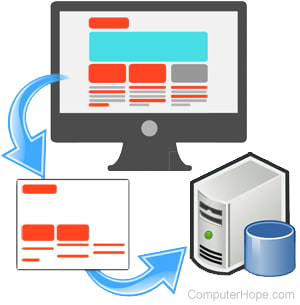Web scraping

Alternatively, called web harvesting, web crawling, or data extraction, web scraping is copying data published on websites. Usually, the scraping process is performed by the software to automatically locate, identify, download, organize, and store the desired data.
Web scraping has been in existence for as long as the Internet itself. The first web robot, World Wide Web Wanderer, was created in 1993. Its purpose was to measure the size of the entire Internet. By 2000, the first Web API (application programming interface) was created as an interface that granted access for programmers to download publicly available data.
Why is web scraping used?
Websites often contain large amounts of invaluable data, and the purpose behind commercial web scraping is to gather leads, query APIs, and copy content to perform analysis. In recent times, web scraping is a significant tool used by data scientists and analysts to gather the information used to make business decisions.
Data scraped from a website can be stored in databases or on a computer in formats like CSV (comma-separated values), TXT, JSON (JavaScript Object Notation), XML (extensible markup language), and DOC.
What are the methods of web scraping?
There are two methods of web scraping: manual web scraping and automatic web scraping. Manual web scraping involves loading pages manually and copying text from those pages to paste in a text editor or spreadsheet. To get objects like images, videos, and audio, the person scraping can use the browser's save as function to download each media type. This method is often slow and could only be used for small projects.
How does automatic web scraping work?
Automatic web scraping involves using a software tool, a bot, an API, or a programming language like Python to download entire pages and extract specific information from them. The downloaded content may include text, HTML (hypertext markup language), and multimedia. This method is fast and can be used for large projects.
Can web scraping steal private data?
Web scraping is performed only on publicly-displayed data, i.e., information that can be viewed without logging in with a name and password. Data that is not displayed on the page cannot be scraped.
What is an example of a web scraper?
Scrapy is a free, open-source web scraping tool written in Python. You can learn more about it at the Scrapy official website.
Browser, Crawler, Harvester, Internet terms, Price bot, Spider
